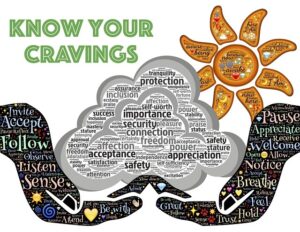 I left off the last post with a description of how habits work. As we keep repeating an action we wear a neurological groove, making the action easier and more automatic every time we perform it. If you read Charles Duhigg’s book that I referenced yesterday you’ll learn about one way to disrupt a habit: basically, you have to figure out what the reward is and then substitute a new routine that will give you the same result without the negative consequences. For instance, and this is quite relevant here because it’s about eating, Duhigg analyzes the habit he’d formed of going down to the cafeteria every workday afternoon and getting a cookie. He gained five pounds, his wife let him know that she disapproved, and he set himself the task of changing the habit. What did he really want as his reward? he asked himself. Was it satisfaction of true hunger? Then he could eat an apple. Was it a shot of energy? Then he could get a cup of coffee. Or, perhaps less intuitively, did he just need a break, a chance to interact with people after sitting in front of his computer for several hours? He decided that last one was it. So he started getting up from his desk and looking for a chance to chat with people when the mid-afternoon munchies hit. (I haven’t gone back and re-read the relevant section, but I don’t believe he just started interrupting his co-workers as they were trying to concentrate.) He successfully changed his cookie habit. You can also simply remove the cue, if that’s possible. So that bag of cookies in your pantry that tempts you every time you open the door should just go. If the cookies aren’t there, you can’t eat them.
I left off the last post with a description of how habits work. As we keep repeating an action we wear a neurological groove, making the action easier and more automatic every time we perform it. If you read Charles Duhigg’s book that I referenced yesterday you’ll learn about one way to disrupt a habit: basically, you have to figure out what the reward is and then substitute a new routine that will give you the same result without the negative consequences. For instance, and this is quite relevant here because it’s about eating, Duhigg analyzes the habit he’d formed of going down to the cafeteria every workday afternoon and getting a cookie. He gained five pounds, his wife let him know that she disapproved, and he set himself the task of changing the habit. What did he really want as his reward? he asked himself. Was it satisfaction of true hunger? Then he could eat an apple. Was it a shot of energy? Then he could get a cup of coffee. Or, perhaps less intuitively, did he just need a break, a chance to interact with people after sitting in front of his computer for several hours? He decided that last one was it. So he started getting up from his desk and looking for a chance to chat with people when the mid-afternoon munchies hit. (I haven’t gone back and re-read the relevant section, but I don’t believe he just started interrupting his co-workers as they were trying to concentrate.) He successfully changed his cookie habit. You can also simply remove the cue, if that’s possible. So that bag of cookies in your pantry that tempts you every time you open the door should just go. If the cookies aren’t there, you can’t eat them.
Habits
Three Human Drives that Feed (!) into Fad Diets.
 I’ve already talked about the human taste for drama, a characteristic that draws us into all sorts of extravagant and unsustainable announcements and commitments. The inherent weakness of drama as a long-term tool for change is this:
I’ve already talked about the human taste for drama, a characteristic that draws us into all sorts of extravagant and unsustainable announcements and commitments. The inherent weakness of drama as a long-term tool for change is this:
We think that the dramatic and public announcement (“I’m going keto!” “I’m joining a gym!”) will do the work for us. Now, to be clear, we don’t necessarily believe this consciously. If someone asked us, “Do you honestly think that saying you’re going to lose 50 pounds will somehow make you lose 50 pounds?” you’d say, “Of course not! What kind of nitwit do you take me for?” But we’ve all done it, haven’t we? We say, or think, “I have to do something about this! I’m going to . . . “ And the momentum carries us along, for a little while. Once that initial excitement wears off, though, so does our motivation. And what is motivation, anyway? Gretchen Rubin has a great article on her blog about this whole question. Sometimes when people use that word they really mean “desire”–”I want to do so-and-so.” Sometimes it means “reasons why”–”I know why I need to quit staying up late to play video games.” Sometimes it’s a statement of some kind of vague moral impulse–”I should spend less money on impulse buys.” As she puts it, people aren’t really motivated by motivation. That’s a tautology, in which you just go around in circles: “I’m going to do something because I’m motivated to do it and so I will do it because I’m motivated.” As I’ve said myself before, “A goal without a plan is just a wish.” That’s what a lot of so-called “motivation” is—a wish. As the estimable Gretchen points out, you need a clear aim and and plan of action, not some vague motivation.
Where are you on the food-choice pyramid?
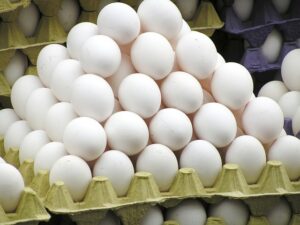 I plan to do a series of posts on some of the fad diets floating around out there, many of them on celebrity websites, but today I want to write in more general terms about what guides the food choices that many people make. Let me say a couple of things first:
I plan to do a series of posts on some of the fad diets floating around out there, many of them on celebrity websites, but today I want to write in more general terms about what guides the food choices that many people make. Let me say a couple of things first:
1. Making choices is better than not making choices. If you just eat what’s in front of you without thinking, snacking on the candy bowl at the office, always getting the soft drink/chips/cookie combo with your sandwich for lunch, cleaning out the popcorn bowl as you sit in front of the TV, that’s just mindless eating. At least if you’ve decided to follow some strict regimen you’re paying attention.
In Which I Disagree with the New York Times and the Medical Establishment—Part One
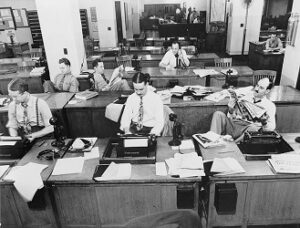 Oh my goodness! I don’t know that I’ve ever seen as much nonsense packed into two sentences as with these:
Oh my goodness! I don’t know that I’ve ever seen as much nonsense packed into two sentences as with these:
Only bariatric surgery reliably leads to long-term weight loss. Now scientists hope to duplicate the effects with a pill.
I mean to say, have you ever in your life read something so silly? I’m sure I haven’t, and that’s taking in a lot of territory. I have a New York Times subscription, mainly so I can watch Melissa Clark’s food videos, but I do take a look at their front page fairly regularly, and this little gem was lurking there:
Food As Fuel, Part II–Make Your Own Real Food
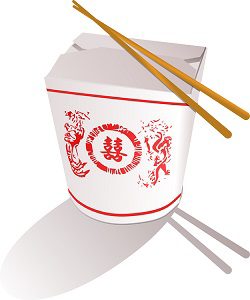
Eating real food involves a certain amount of effort, unfortunately. Your great-grandma wouldn’t recognize frozen pizza. Learning to make something that’s good for you and tastes good is a true life skill and a test of your ability to take care of yourself. You can’t just eat cold cereal for dinner or order takeout every night. You can’t go out to eat for every lunch. And you can’t skip breakfast! If you do these no-no’s you’ll spend way too much money, almost certainly weigh more than you should, but, more importantly, you’ll be eating lots of processed food, which means you’ll be eating lots of salt, non-healthy fats, and weird stuff. That’s the technical term: weird stuff.
This isn’t a cooking blog per se, especially for regular weekday meals. Most of the recipes you’ll find on this site as it is going to be re-branded and re-purposed will be for party food, and even
Food As Fuel, Part I–Is It Real Food?
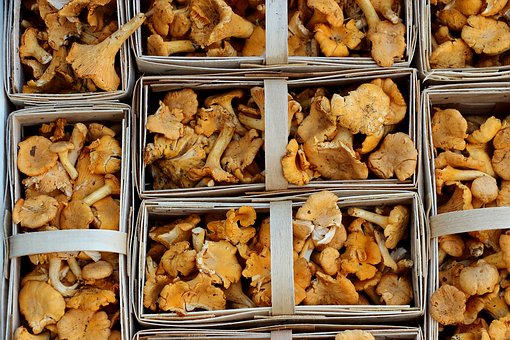
There are two proper rules for food in our lives.
First, fuel. We know this. We know that, given enough time without food, we’ll die of starvation, and we also know that there are plenty of people in the world right now who risk experiencing exactly that.
But we live in a society of abundance, indeed over-abundance. While there are certainly people in the US who go hungry every day, the experience for most of us veers in entirely the opposite direction: Not only is food readily available to us at all times, we are also constantly urged to eat by means of advertising.
Change Your Eating by Changing Your Mind
 As we head further into the holiday season I think it’s a good time to launch my series on respecting food roles. Indeed, sometime over the next few weeks you’ll see this entire site transform before your very eyes! The banner will change from its leafy tendrils to a food-related theme and the name will change from “Intentional Living” to “Respect Food Roles.” And what are those roles? Glad you asked. As I’ve thought about that question I’ve come up with only two legitimate ones:
As we head further into the holiday season I think it’s a good time to launch my series on respecting food roles. Indeed, sometime over the next few weeks you’ll see this entire site transform before your very eyes! The banner will change from its leafy tendrils to a food-related theme and the name will change from “Intentional Living” to “Respect Food Roles.” And what are those roles? Glad you asked. As I’ve thought about that question I’ve come up with only two legitimate ones:
Looking Ahead . . . and Missing the Present
 We’re always told to plan ahead, look to the future, and keep our eyes on the goal. For me, though, that’s pretty terrible advice. I tend to be like the guy in the picture. There I am, up on the ladder, gazing into the future, and my feet aren’t on the ground of the present. I can imagine myself having lots of speaking engagements, or selling lots of books, or whatever. I have what I would call goals, but I’m not very good at being sure that TODAY, right now, I’m doing what needs to be done that will move me along the way to the desired result. As I say in the chapter on “Motivations, Goals and Desires” in my book (see sidebar for ordering information), “A goal without a plan is just a wish.”
We’re always told to plan ahead, look to the future, and keep our eyes on the goal. For me, though, that’s pretty terrible advice. I tend to be like the guy in the picture. There I am, up on the ladder, gazing into the future, and my feet aren’t on the ground of the present. I can imagine myself having lots of speaking engagements, or selling lots of books, or whatever. I have what I would call goals, but I’m not very good at being sure that TODAY, right now, I’m doing what needs to be done that will move me along the way to the desired result. As I say in the chapter on “Motivations, Goals and Desires” in my book (see sidebar for ordering information), “A goal without a plan is just a wish.”
Habits Are Just Tools!
 Here’s what I want: to move along doing the grungy stuff on automatic pilot while I think great thoughts. Wouldn’t that be wonderful? Suddenly, at the end of the day, I’d realize that every task had been done perfectly but that I hadn’t had to exert any effort to do them. All done through the magical power of habits and routines. We all know, though, that it ain’t never gonna happen. And guess what? it would be a shame if it did
Here’s what I want: to move along doing the grungy stuff on automatic pilot while I think great thoughts. Wouldn’t that be wonderful? Suddenly, at the end of the day, I’d realize that every task had been done perfectly but that I hadn’t had to exert any effort to do them. All done through the magical power of habits and routines. We all know, though, that it ain’t never gonna happen. And guess what? it would be a shame if it did
The Strategy of Convenience
 Another habits principle is that you’re more likely to do what’s convenient and less likely to do what isn’t. It struck me just a day or two ago that I had a tool that I loved, that was extremely convenient and which I could use more: my darling little laptop. You can see in the picture how small it is. [Note: this is a stock image; as with so many other pictures, this one was lost in the website move. And now, as I re-do this post, that little laptop is long gone–I think I’m o the third one now.] I carry it around with me from room to room just as some people carry around their smartphones. [Again, a further note: I certainly now have a smartphone!] A couple of days ago I sat down to pay some bills and realized that I hadn’t balanced the checkbook for some time. I’ve still been using a paper check register to do this, and I thought, Why don’t I use my laptop? I googled “virtual check register” and found something called “checkbook.com.” I also used the strategy of the “clean slate,” another Gretchen Rubin idea. I didn’t bother with going back and checking every transaction since the last time I did the balancing act; I don’t think I’ve ever found a mistake on the bank’s side, so what was the point? The important thing is for me to have some kind of backup information, although I guess it would be fine just to rely on the bank’s online statement. I may re-think the issue in the future, but at least for now I can just enter items online and see the balance computed for me. I’m also going to go ahead and start actually paying the bills online, something I’ve resisted doing for some reason. Why should I go through the inconvenient process of writing out checks, entering them in the register, putting the check and the payment slip in an envelope, hunting up a stamp and a return address label, and then mailing them? Hmmm. As soon as I get finished writing this post I’ll go to the bank website, pay off yesterday’s credit card charges and pay the two bills I have right now. One is a medical bill that will have to be paid by check, but the other is the monthly phone/internet charge, so I can set up online bill pay for that. (I realize that the preceding may sound like I’m still using a quill pen and paying bills with bags of coins, but I’m really trying to become more hip and happening!) I’ve been wanting to establish the habit of keeping up with our finances on a daily or semi-daily basis; the use of a convenient, familiar, well-liked tool will help me do that.
Another habits principle is that you’re more likely to do what’s convenient and less likely to do what isn’t. It struck me just a day or two ago that I had a tool that I loved, that was extremely convenient and which I could use more: my darling little laptop. You can see in the picture how small it is. [Note: this is a stock image; as with so many other pictures, this one was lost in the website move. And now, as I re-do this post, that little laptop is long gone–I think I’m o the third one now.] I carry it around with me from room to room just as some people carry around their smartphones. [Again, a further note: I certainly now have a smartphone!] A couple of days ago I sat down to pay some bills and realized that I hadn’t balanced the checkbook for some time. I’ve still been using a paper check register to do this, and I thought, Why don’t I use my laptop? I googled “virtual check register” and found something called “checkbook.com.” I also used the strategy of the “clean slate,” another Gretchen Rubin idea. I didn’t bother with going back and checking every transaction since the last time I did the balancing act; I don’t think I’ve ever found a mistake on the bank’s side, so what was the point? The important thing is for me to have some kind of backup information, although I guess it would be fine just to rely on the bank’s online statement. I may re-think the issue in the future, but at least for now I can just enter items online and see the balance computed for me. I’m also going to go ahead and start actually paying the bills online, something I’ve resisted doing for some reason. Why should I go through the inconvenient process of writing out checks, entering them in the register, putting the check and the payment slip in an envelope, hunting up a stamp and a return address label, and then mailing them? Hmmm. As soon as I get finished writing this post I’ll go to the bank website, pay off yesterday’s credit card charges and pay the two bills I have right now. One is a medical bill that will have to be paid by check, but the other is the monthly phone/internet charge, so I can set up online bill pay for that. (I realize that the preceding may sound like I’m still using a quill pen and paying bills with bags of coins, but I’m really trying to become more hip and happening!) I’ve been wanting to establish the habit of keeping up with our finances on a daily or semi-daily basis; the use of a convenient, familiar, well-liked tool will help me do that.